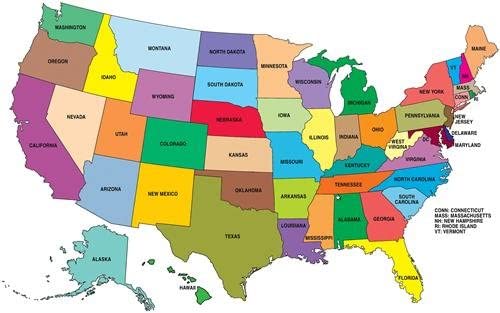With tensions surrounding ‘everything 2020’, primarily the Covid-19 pandemic, how are people ending this year? As Sandi Bachom’s book said: Denial is not a river in Egypt, yet it is a common defense mechanism. Sigmund Freud’s youngest daughter Anna Freud placed denial next to regression, rationalization and reaction formation in explaining most common ways people attempt to escape facts. If there was any doubt about the validity of her theories, this year certainly offered a lot of food for thought. On one hand there were heavily armed civilians, storming the Michigan’s Capitol, to protest Gretchen Whitmer’s lockdown orders, and White House’s Coronavirus adviser, Scott Atlas, tweeting that ‘people should rise up against Covid-19 restrictions’. On the other hand, actual Covid experts, like Doctor Fauci and most others, saying that preventative measures is all people have now, and even once a vaccine is available, masks and social distancing should be observed. Each side is convinced beyond doubt, that they are right, and the other side has completely lost their minds, but this isn’t about being empathic and understanding every point of view. The US has lost over a quarter of a million people to the pandemic by now, and the numbers are rising almost geometrically, from infections to hospitalizations, to an additional massive death toll not far behind. Regardless, just about a half of the US is willing to be vaccinated, with the rest not quite ready to use the obvious preventative measure. Some of it had to do with politization around a possible vaccine, in an attempt to explain lack of stricter medical measures. Some of it is people just unwilling to believe in commonly accepted scientific facts, leading up to things, like measles outbreaks all over the country, long before the current pandemic. What is causing for people to literally choose death over accepting others’ opinions?
During the Democratic primaries leading up to the Presidential election of 2020 there were two candidates, who threw their hat into the ring, using their regard for facts and numbers: Andrew Yang and Michael Bloomberg. Unlike the loud statements made by Bernie Sanders, with proposed programs, the US would likely be incapable of sponsoring, the other two laid out carefully crafted plans for how to move the country forward and fix many imperfections. They both failed miserably and dropped out of the race to much fanfare, but little pragmatic recognition. Even Elizabeth Warren, whose motto has been ‘I’ve have a plan for that too’, couldn’t come even close to her male liberal counterpart. It took a 77 year old man, who became famous for misspeaking, to finally return the US Presidency to the hands of Democrats. Still, 2 weeks after the election there are literally over 70 million people, who still think that current administration’s plan, if it can be called that, for fighting the pandemic is either great or good enough.
Most Operation Warp Speed supporters are banking hard on a vaccine. With Pfizer’s 90% success rate for a vaccine, Moderna’s 94.5% efficiency, and likely others following in those mRNA footsteps, it seems to be a good bet, whenever a vaccine would be widely available. Compared to flu vaccine’s 40-60% it seems great, right? Let’s take a look at how those rates are achieved. Flu, as known by most, has different strains. Virus mutates and presents itself in different forms, and a strain to combat every year’s surge is set months before its arrival, to allow time to make enough vaccines. The 40-60% is nothing but the rate of other strains of flu, entering a region. As such, each year’s vaccine against flu is in fact near 100%, but doesn’t work well, or at all, on other strains. How long will pass before Covid-19 mutates into something a currently almost ready vaccine won’t be able to combat? So far mutations have been minor, making Covid spread faster or more resilient against masks, but not changing its reliance on proteins to jump from host to host and do damage to bodies’ respiratory. Kellyanne Conway mistakenly stated that Obama’s administration had plenty of time to prepare for Covid-19, as Coronavirus’ versions 1 through 18 should have taught a lesson, but reality is that there was 614G is just a minor adjustment to the original Covid-19 (named after the year it was discovered, not the previous versions).
When Jesus Christ walked the earth he was just a Jew reminding his fellow citizens not to place faith in Roman occupiers, but to only trust in one Almighty, while Greeks and Romans were still busy promoting deities through their mythology. Yet, it didn’t take long, before his teachings were used an excuse to pillage though the Middle East in Christian Crusades, even justifying inquisition, Catholic Church’s support for the wealthy, or countless other atrocities over the last 2,000 or so years. Jews themselves, tired through their struggles of waiting for a Messiah to arrive, gladly welcomed the Roman Empire’s quest to announce that Messiah has in fact arrived, and his name was Jesus Christ. Unlike the new 25 year old Congressman out of North Carolina, David Madison Cawthorn’s methods of converting Jews to Christianity, initial Christian conversions were forced, and people of different faiths often killed, not that different from the way Muslim devotees treated Hindus and Sikhs, over the last 1,000 or so years. Why are people still open to defying facts for the sake of their beliefs, or lack thereof? Perhaps the answer is far more theological, as opposed to pragmatic. From people burning themselves, along with their own communities back in old Russia, to modern laws in states, like Idaho, allowing kids to die without medical attention due to religious beliefs, people often valued their beliefs over their lives. Today’s pandemic killing believers and non-believers alike doesn’t differentiate. Similar to Marvel’s Thanos, it doesn’t judge, unlike human minds, yet it doesn’t influence Gwyneth Paltrow’s Goop’s views or many similar opinions either. And it’s not just the lower-risk age groups, that deny the danger from Covid. Even the 87 year old Republican Senator Grassley refused to get tested after exposure, just to test positive for the virus shortly after. Is it the ‘bury head in the sand’ approach, or do some people truly believe that it’s better to die, than take preventative measures?
In New York teachers brought coffins and a guillotine to protest NY DOE’s plan for opening schools. It helped, causing for NYC Schools Chancellor Richard Carranza to delay the opening over and over, to improve safety measures, just to shut down 8 weeks later anyway. Is it any wonder, that lack of laptops for remote learning, low and inconsistent attendance, and frustrated and confused teachers still can’t offer the largest school system’s kids to study and learn, as guaranteed and mandated by New York’s own laws. Meantime teachers in Florida failed to get attention through protesting, and ended up suing the FL DOE to stop reopening schools. Despite Governor DeSantis’ emergency order to reopen the schools, with a Judge’s help, the teachers succeeded. Individual suits succeed and fail in New York and Florida alike. What makes a difference is overall state policy fighting the pandemic. Right now Florida has a 9% positivity rate, while NY just crossed 3%. High density of NY population notwithstanding, strict preventative measures of NY are certainly yielding better results, than Florida, where individual mayors are begging their Governor to change how the pandemic is treated, and Gov. DeSantis hiding data, making him look bad.
Rules of any type aren’t readily welcomed in the land of the free. From resisting police in even trivial situations to resisting election results, Americans on every side of the political spectrum aren’t fans of compliance. Shaking the very nature of established institutions has been embedded in the very DNA of US citizens. Protests surrounding the death of George Floyd and police brutality blanketed the entire country, despite the pandemic. It took months, before experts admitted that protests don’t act as Covid super-spreaders, due to taking place outside, but people turning out for those protests took risks before being near assured of their safety from the virus. Rising up against a perceived injustice is a big part of the US culture, starting with the Boston Tea Party. There are times when addressing important social issues, like racism, had major positive effect, like giving African Americans right to vote or establishing housing protections. There are times, when they backfire, like letting a convicted murderer, OJ, walk free, because of involvement of a racist copin his arrest. Comparatively it seems like a worthy effort nonetheless, with millions of US citizens getting equal rights vs. single instances, but as history teaches us, ends rarely justify the means, and people are no longer guided by Machiavelli’s guide for rulersmade half a millennium ago.
This is the US history, marred by stealing the land from natives; slavery; bigotry towards different immigrants this country welcomed for centuries, in order to build it; and its questionable wars post-WWII rarely fair, or even better than other bullies on the world stage in any way. Strength and prevalence are always seen as a welcomed quality by most, be it in competitive sports, politics, or even survival from the pandemic. In a way it is viewed as social Darwinism, or as the wealth-accumulating mecca of the world would promote, simply ‘being the best’. Competition was encouraged in many other countries through history, from Sparta’s harsh approach, to USSR’s slogan of completing 5-year plans in 4 years, and of course, the free market economy and rejection of government involvement, reminiscent of the failed market trends of socialist Soviet Union and others. FDR was able to establish many of what is viewed as ordinary government programs, like Social Security, help for farmers, financial regulations, and more, but it came on the heels of Great Depression, when emergency measures were warranted. Perhaps post-pandemic USA will allow Joe Biden to do something similar, albeit corporate greed and political views caused for Obama’s Affordable Care Act to sustain nothing short of an onslaught of legal assaults, from lobbying by HMOs to numerous Supreme Court interventions. With efforts combating global warming stalling greatly under the current White House, it still seems inevitable for the country to attempt to save itself from self-produced extermination by exploring alternative energy sources, use of electric vehicles, and even making dietary adjustments.
One of the greatest parts of the US political system is it’s ‘checks and balances’ motto. No single entity, be it a President, Congress, or the Judicial, can fundamentally change the fabric of the country. It takes all of it, along with plenty of wealth, to enact any meaningful change in any direction. There are ‘originalists’ among many Judges, including Supreme Court of the US. Interpreting Constitution written a quarter of a millennium ago to the tee has its rewards for those, who think that the end of 1700s brought about as much change, as this country should ever experience. What about all other changes, which happened over the last 230 years, like abolishment of slavery, giving women the right to vote, or more recent ones, like allowing gay people to get married, or giving various rights to states, establishing a Federal Tax system, or even the ones making alcohol illegal and then legal again? Even there, there are originalists, like Hon. Samuel Alito, who sees his extreme conservatism as justification for violating one of the most sacred Judicial norms: his bias against changes. There were also originalists, like Hon. Ruth Bader Ginsburg, who followed the intent of this nation’s Founders through embracing societal changes, as opposed to following the words of current laws, disregarding pragmatic applicability. The argument of ‘letter of the law vs spirit of the law’ is one of the most controversial issues in the US now. Unlike the questionable fairness of the Electoral College, it affects citizens far more often, than once every 4 years.
As unfair as some extreme inequalities may seem, the nation’s highest elected office seems to be up for grabs by drastically different politicians every 4, or more realistically 8, years. After 8 years of Bill Clinton, the last US President to leave a balanced budget; the country got 8 years of G. W. Bush, his Middle Eastern wars, a drastic increase in national debt, and finally the Great Recession; then 8 years of Barack Obama, who managed to change the US healthcare coverage system, broker a peace treaty with a perceived mortal enemy, enact numerous financial regulations, with help from Elizabeth Warren, changed US military’s ‘don’t ask, don’t tell’ rule, enacted global warming initiatives, and many more. The 4 years of Donald Trump, which followed, only brought a single minor accomplishment, besides undoing the changes, enacted by his predecessor. The First Step Act brought two reality stars together, with Paris Hilton’s hairdresser helping the Apprentice star seem Presidential. It’s no wonder, that despite his marketing wizardry, the tax-hiding impeached aging white man lost his reelection after only 1 tremulous term to the opponent gathering the greatest number of votes in the history of the country, while denying the scientific consensus on the pandemic.
With headlines, like ‘CEO pay increased 1,167% from 1978 to 2019, but the typical worker’s pay grew a measly 13.7% over the same time span’ and facts like ‘87% of blacks and 61% of whites said the U.S. criminal justice system treats black people less fairly’ is it any wonder that majority of people is unhappy? Financial and racial inequalities seem to be prime motivation factors for change, but how do opposing views of 80 million people contesting 75 million people work themselves out? The answer is simple: painfully. The rivers of tears over Hillary Clinton’s 2016 loss don’t even compare to the emotions surrounding this year’s election. Long gone are the days of President Roosevelt winning 25% more votes, than his opponent. Despite the record turnout, Joe Biden’s victory currently stands at just under 4% over his opponent. Both of the last two Republican Presidents lost the popular vote. From Bush vs. Gore to Giuliani’s $20K per day fees for contesting the current election results, turmoil has surrounded Presidential elections for some time. Opposing views, devout of empathy, brought forth the least qualified, yet extremely popular President only 4 years ago, and despite his antics hardly reflecting the will of majority, the infamous real estate trickster barely lost the last 2 elections’ popular votes.
Enter the pre-Covid social alienation. From Greek doctor Asclepiades before birth of Christ, to Swiss psychiatrist Felix Platter, both examining the psychological effects of feeling excluded; Karl Marx tying estrangement to economic inequalities and injustices; and practical or perceived discord due to technology automation, people have felt out of place for a long time. Rules governing expressions prevented mass expressions of dissatisfaction, often manifesting through uprisings, be it gladiator revoltsof Ancient Rome, 1789 French Revolution, 1917 Soviet Revolution, or the far more organized and civilized racial inequality protests of 2020. In the not so distant past, citizens have gone as far as burning their own homes to bring attention to the way poor people lived in the Bronx at the time.
The current American discord goes much further, than citizens practicing their rights to express themselves freely. While the political landscape seems overly conflicted, in fact the US may be living though one of the most just days of turmoil in its history. No longer does the price of religious freedom lie through killing and robbing Native Americans. No longer is the country functioning on the backs of stolen slaves. Despite all imperfections, Derek Chauvin and Brett Hankison deal with criminal charges, while Daniel Pantaleo got fired. Only a couple of decades ago those things seemed unrealistic, oftentimes underprivileged and immigrants being judged for actions they didn’t commit. It’s not so clear abroad either, be it in Ethiopia or Myanmar, with even Nobel Prize Peace winners committing atrocities, once rising to power, for the sake of their beliefs.
The pandemic is far from over, with rates higher now in the US, than at any other time, despite all the knowledge obtained and measures taken. Thanks to Biden’s victory, post-election protests seem small now, but they didn’t stop either. Perhaps that is in fact the most American state of mind: disharmony through disagreement. And perhaps it is just fine. After all, America the beautiful is more than just a song. Then again, America the ugly always stands by, waiting for its turn.



